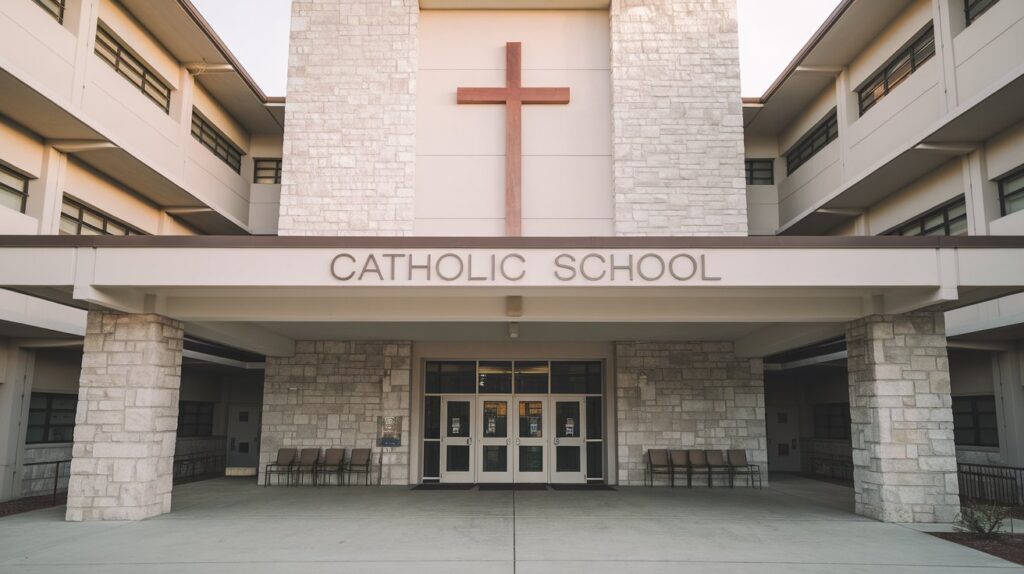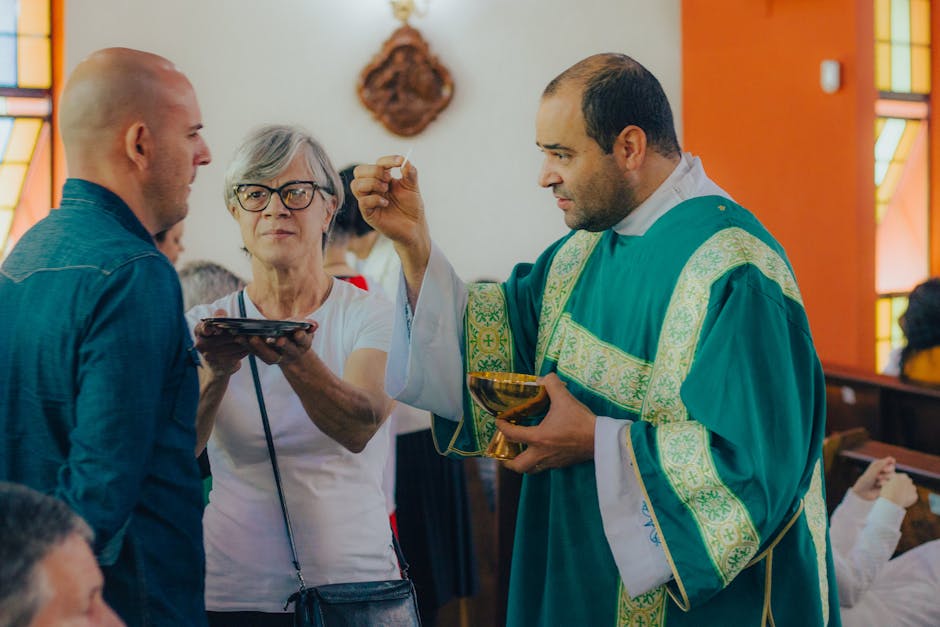In today’s rapidly evolving business landscape, innovation and ethical leadership have become more critical than ever. While much attention focuses on Ivy League universities and prestigious MBA programs as the breeding grounds for business talent, Catholic educational institutions have quietly but consistently produced some of the most successful and principled business leaders of our time. These faith-based institutions offer a unique educational approach that balances rigorous academic preparation with strong moral foundations—a combination increasingly valued in the corporate world.
This article explores how Catholic schools serve as incubators for tomorrow’s business innovators, examining the distinctive elements of Catholic education that foster entrepreneurial thinking, ethical decision-making, and social responsibility. Through profiles of successful alumni, analysis of curriculum approaches, and examples of innovative school-business partnerships, we’ll demonstrate how the values instilled in Catholic education translate into business success and positive social impact.
The Catholic Education Advantage: More Than Academic Excellence
Catholic schools have long been recognized for their academic rigor, but their contribution to developing business leaders extends far beyond test scores and college acceptance rates. At the core of Catholic education lies a commitment to developing the whole person—intellectually, spiritually, morally, and socially.
This holistic approach creates graduates with several distinct advantages in the business world:
- Ethical Framework: Catholic education emphasizes moral reasoning and ethical decision-making based on Catholic social teaching, providing students with a robust framework for navigating complex business dilemmas.
- Service Orientation: Through required service projects and community engagement, students develop empathy, social awareness, and a sense of responsibility that translates into stakeholder-focused business leadership.
- Disciplined Work Ethic: The structured environment and high expectations foster self-discipline, perseverance, and a commitment to excellence.
- Global Perspective: Drawing on the universal nature of the Catholic Church, many Catholic schools emphasize global awareness and cross-cultural understanding—increasingly essential skills in today’s interconnected business environment.
These distinctive elements create a fertile ground for developing innovative thinkers who approach business not merely as a means to profit but as a vehicle for positive change.
The Data Speaks: Catholic School Impact on Future Success
Research consistently shows that Catholic school graduates demonstrate advantages that correlate with business success. The following table synthesizes findings from multiple studies on outcomes associated with Catholic education:
| Outcome Measure | Catholic School Graduates | National Average | Difference |
|---|---|---|---|
| College Completion Rate | 62% | 33% | +29% |
| Graduate/Professional Degree Attainment | 26% | 11% | +15% |
| Self-Reported Leadership Skills (Scale 1-10) | 7.8 | 6.4 | +1.4 |
| Community Volunteering Rate (Adults) | 57% | 29% | +28% |
| Average Mid-Career Salary | $94,500 | $80,700 | +17% |
| Business Ownership Rate | 12.3% | 8.6% | +3.7% |
Sources: National Catholic Educational Association (NCEA), U.S. Department of Education, Gallup Polls, and Catholic Education Research Initiative (compiled 2023)
These statistics suggest that Catholic education develops not only academic aptitude but also the leadership qualities, community orientation, and entrepreneurial mindset that drive business innovation and success.
Profiles in Innovation: Catholic School Alumni Making Their Mark
The impact of Catholic education on business innovation becomes even more apparent when examining the careers of successful alumni. Many credit their Catholic school experience as foundational to their business approach and success.
Tom Monaghan (Domino’s Pizza)
After attending Catholic schools and seminary, Monaghan founded Domino’s Pizza, revolutionizing the pizza delivery industry. He attributes his business success to the work ethic and discipline instilled during his Catholic education, and has since dedicated much of his fortune to Catholic educational initiatives, including founding Ave Maria University.
Tim Cook (Apple)
Though not Catholic himself, Cook attended Catholic school and has spoken about how the values he learned there—including an emphasis on human dignity and service to others—inform his leadership at one of the world’s most innovative companies.
Kathleen Murphy (Fidelity Personal Investing)
A graduate of Mercy High School in Baltimore, Murphy has been named among the “50 Most Powerful Women in Business” by Fortune. She credits her Catholic education with teaching her to balance profit motives with social responsibility—a philosophy evident in her leadership at Fidelity, where she oversees more than $3.2 trillion in customer assets.
Carlos Slim (Grupo Carso)
One of the world’s wealthiest individuals and a renowned business innovator, Slim attended a Jesuit school in Mexico. He has frequently referenced how Jesuit principles of critical thinking, intellectual rigor, and social justice have shaped his business practices and philanthropic endeavors.
Ken Langone (Home Depot Co-Founder)
A product of Catholic schools on Long Island, Langone co-founded Home Depot, revolutionizing the home improvement retail sector. He has been a significant donor to Catholic education, citing it as the foundation for his business ethics and entrepreneurial spirit.
Curriculum Innovations: Building Tomorrow’s Business Leaders
Catholic schools have evolved their academic and extracurricular offerings to intentionally foster the skills and mindsets needed for business innovation while remaining true to their core values. The following table highlights distinctive programmatic elements found in many Catholic secondary schools:
| Program Element | Description | Business Skill Development |
|---|---|---|
| Social Justice Projects | Long-term initiatives addressing community needs | Strategic planning, resource allocation, impact assessment |
| Ethics Across the Curriculum | Integration of ethical discussion in all subjects | Ethical decision-making, values-based leadership |
| Global Solidarity Exchanges | Virtual and in-person collaborations with schools worldwide | Cross-cultural competence, global market understanding |
| Entrepreneurship Incubators | Structured programs for student business development | Innovation, financial literacy, market analysis |
| Capstone Senior Projects | Year-long research and implementation projects | Project management, presentation skills, independent work |
| Alumni Mentorship Programs | Pairing students with graduates in business | Professional networking, career discernment |
| Design Thinking Workshops | Creative problem-solving methodology | Innovation mindset, customer-centered design |
| Integrated STEM + Arts (STEAM) | Interdisciplinary approach to technical subjects | Creative technical problem-solving, innovation |
These programmatic elements demonstrate how Catholic schools are intentionally cultivating the next generation of business innovators while remaining faithful to their mission of forming the whole person.
Case Study: Unique Approaches at Leading Catholic Schools
Several Catholic schools have developed particularly noteworthy approaches to fostering business innovation:
Cristo Rey Network: The Corporate Work Study Program
Perhaps the most revolutionary innovation in Catholic education in recent decades, the Cristo Rey Network’s Corporate Work Study Program places students in professional work environments one day per week throughout high school. Students earn approximately 60% of their tuition through real work at partner businesses while gaining invaluable professional experience.
The impact has been remarkable:
| Metric | Cristo Rey Network Results |
|---|---|
| College Enrollment Rate | 90% (vs. 45% for demographic peers) |
| College Completion Rate | 31% (vs. 11% for demographic peers) |
| Alumni in Business Careers | 41% |
| Partner Companies Reporting Value | 95% |
| Partner Companies Reporting Student Contributions | 87% |
Source: Cristo Rey Network Annual Report 2023
This innovative model demonstrates how Catholic education can directly bridge classroom learning with professional development while creating sustainable funding mechanisms.
Marymount School of New York: Entrepreneurship Program
This all-girls Catholic school has developed a comprehensive entrepreneurship curriculum that spans all grade levels. The program culminates in a “Shark Tank”-style competition where students pitch business ideas with social impact components to actual investors.
| Program Component | Skills Developed |
|---|---|
| Design Thinking Labs (Grades 6-8) | Problem identification, empathy mapping, prototyping |
| Social Enterprise Fundamentals (Grades 9-10) | Business model development, social impact assessment |
| Venture Incubator (Grades 11-12) | Market testing, financial modeling, investor pitching |
| Summer Business Internships | Professional experience, networking, mentorship |
The program has produced several student-led businesses that have secured actual startup funding, with 43% of graduates pursuing business or entrepreneurship in college.
Partnerships: Catholic Schools and Catholic Businesses
A distinctive feature of many Catholic educational institutions is their strong connection to businesses founded or led by Catholics. These partnerships create robust ecosystems that support innovation while reinforcing shared values.
Partnership Models and Benefits
| Partnership Type | Example | Benefits to Students | Benefits to Businesses |
|---|---|---|---|
| Executive Mentorship | Executives from Catholic-led companies mentoring student teams | Professional guidance, role modeling | Talent pipeline development, community engagement |
| Innovation Challenges | Businesses presenting real problems for student solution | Authentic problem-solving, portfolio development | Fresh perspectives, potential innovations |
| Internship Pipelines | Preferential placement of Catholic school students | Professional experience, career discernment | Values-aligned talent acquisition |
| Shared Facilities | Business incubators housed at Catholic universities | Access to entrepreneurial ecosystem | University research access, brand enhancement |
| Curriculum Co-Development | Industry experts helping design learning experiences | Industry-relevant skills, authentic assessment | Workforce preparation influence, CSR fulfillment |
| Investment in Student Ventures | Alumni providing seed funding for student startups | Capital access, business launch support | Investment opportunities, innovation exposure |
Spotlight: Leavey School of Business at Santa Clara University
The Leavey School of Business exemplifies how Catholic higher education can foster innovation while remaining faithful to Catholic identity. Its Ciocca Center for Innovation and Entrepreneurship specifically focuses on “entrepreneurship for the common good,” supporting ventures that balance profit with positive social impact.
The center has developed a distinctive framework for evaluating business innovations that considers:
- Economic sustainability
- Social benefit
- Environmental impact
- Ethical governance
- Human dignity enhancement
This approach has yielded impressive results:
| Metric | Leavey School of Business Result | National Business School Average |
|---|---|---|
| Graduate Business Startups (5-year) | 127 | 84 |
| Percentage with Social Impact Component | 68% | 31% |
| Five-Year Survival Rate | 47% | 31% |
| External Funding Secured | $43.2M | $28.7M |
Source: Association of Catholic Colleges and Universities, 2023
Challenges and Opportunities: The Future of Catholic Business Education
While Catholic schools demonstrate significant strengths in developing business innovators, they also face challenges that must be addressed to maximize their impact:
| Challenge | Strategic Opportunity |
|---|---|
| Declining enrollment in K-12 Catholic schools | Develop distinctive innovation programs that attract families seeking 21st-century skills |
| Limited resources for technology investment | Partner with Catholic-led tech companies for equipment, expertise, and funding |
| Competition from charter and specialized public schools | Emphasize the unique combination of innovation skills and values formation |
| Affordability concerns | Expand Cristo Rey-style work-study models and business partnerships |
| Faculty expertise in entrepreneurship | Create professional development partnerships with Catholic business leaders |
| Balancing tradition and innovation | Frame innovation within Catholic social teaching and the Church’s rich intellectual tradition |
Forward-thinking Catholic schools are addressing these challenges through strategic planning that embraces innovation while remaining faithful to core values and mission.
Conclusion: The Distinctive Contribution of Catholic Education to Business Innovation
Catholic schools provide a unique educational environment that nurtures future business innovators by combining academic excellence with ethical formation and social awareness. The data suggests that this approach yields graduates who not only succeed in business but also approach their work with a sense of purpose and responsibility that extends beyond profit maximization.
As the business world increasingly recognizes the importance of ethical leadership, stakeholder engagement, and social impact, the distinctive preparation offered by Catholic education becomes ever more relevant. The profiles of successful alumni, innovative curricular approaches, and creative business partnerships highlighted in this article demonstrate that Catholic schools are not merely preparing students for careers but forming leaders capable of transforming business itself.
For educators, these examples offer models worth studying and adapting. For business leaders, they suggest the value of engaging with Catholic educational institutions as partners in developing the next generation of innovative, ethical business leadership. And for parents and students, they provide compelling evidence that Catholic education offers distinctive preparation for success in the complex, rapidly changing business landscape of tomorrow.
The synthesis of faith, reason, and service that defines Catholic education creates not just successful business professionals but transformative innovators who understand that true business success includes contribution to the common good—a lesson perhaps more needed in today’s economy than ever before.




